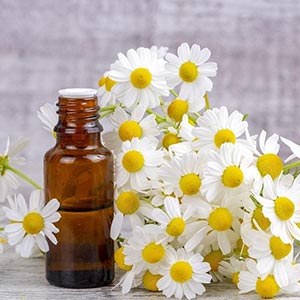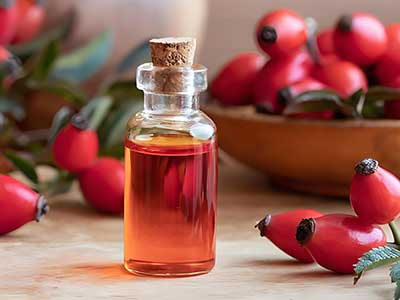What Are Essential Oils?
We sometimes choose essential oils for recovery from surgery. Essential oils are concentrated, volatile plant extracts obtained through distillation or cold pressing. They capture the natural essence, fragrance, and beneficial properties of plants. Each essential oil contains a unique combination of chemical compounds, including terpenes, esters, aldehydes, and phenols, which provide therapeutic benefits.
For centuries, essential oils have been valued in aromatherapy and natural healing systems for their antiseptic, anti-inflammatory, analgesic, and calming effects. The most common ways to use essential oils include inhalation (aromatherapy), topical application (usually diluted with carrier oils), and in some cases, ingestion, though the latter should be approached with caution and under professional guidance.
How Do Essential Oils Affect Postoperative Recovery?
Recovery from surgery involves a combination of physical and emotional challenges. Patients typically experience pain, inflammation, stress, and anxiety following surgery, all of which can slow down the healing process. Essential oils, with their ability to interact with both the body and the mind, offer several benefits for aiding recovery:
1) Reducing Pain and Inflammation: Some essential oils contain analgesic and anti-inflammatory properties that help reduce postoperative pain and swelling. By applying diluted essential oils topically or using them in a diffuser, patients can experience localized pain relief and reduced inflammation.
2) Alleviating Stress and Anxiety: The emotional toll of surgery, including preoperative anxiety and postoperative stress, can significantly affect recovery. Aromatherapy with essential oils helps stimulate the limbic system (the brain’s emotional center), reducing anxiety, calming the nervous system, and promoting relaxation.
3) Enhancing Healing: Certain essential oils help stimulate cellular repair and regeneration, speeding up wound healing and reducing the risk of infection.
4) Improving Sleep: Quality sleep is critical to healing after surgery. Many essential oils are known for their sedative properties, which help improve sleep quality by calming the mind and relaxing the body.
5) Boosting Immunity: Essential oils with antimicrobial properties help prevent infections, which are a common concern after surgery.
Which Essential Oil Has the Most Healing Properties?
While there are several essential oils known for their healing properties, Lavender essential oil stands out as one of the most effective for recovery from surgery. Lavender is a versatile essential oil with a wide range of benefits that make it particularly suitable for recovery from surgery:
1) Anti-inflammatory and Analgesic: Lavender helps reduce swelling, pain, and inflammation.
2) Promotes Relaxation: Its calming effects are well-known for reducing stress and anxiety, making it helpful for both emotional and physical recovery.
3) Aids in Healing: Lavender accelerates wound healing, stimulates tissue regeneration, and reduces the appearance of scars.
4) Antimicrobial Properties: Lavender helps protect against infections, which is essential for preventing postoperative complications.


What Essential Oils Reduce Stress and Anxiety from Surgery?
Surgery can be a highly stressful experience, with patients often feeling anxious before and after the procedure. Aromatherapy using essential oils can effectively reduce these emotional burdens and promote a calm, relaxed state. The following essential oils are particularly effective for recovery from surgery, especially in reducing stress and anxiety:
1) Lavender Oil: As mentioned, lavender is known for its ability to soothe the nervous system and lower anxiety levels. Inhaling lavender essential oil can have a sedative effect, reducing stress hormones in the body.
2) Bergamot Oil: Bergamot has mood-boosting properties and is commonly used to alleviate anxiety and depression. Its citrusy scent helps reduce feelings of stress and promotes a sense of well-being.
3) Chamomile Oil: Chamomile has a calming and sedative effect, which can help reduce feelings of restlessness and anxiety. It is especially useful for improving sleep quality, which can be affected by surgical stress.
4) Frankincense Oil: Frankincense helps to deepen breathing and induce a meditative state, promoting mental clarity and reducing anxiety.
5) Rose Oil: The scent of rose essential oil has been shown to reduce anxiety and induce relaxation. It also improves mood and helps in emotional recovery after surgery.

What Essential Oils Help Pain Management for Recovery From Surgery?
1) Peppermint Oil: Peppermint contains menthol, which provides a cooling sensation and acts as a natural pain reliever. It is particularly effective for soothing muscle pain, headaches, and joint discomfort following surgery.
2) Eucalyptus Oil: Eucalyptus oil has anti-inflammatory and analgesic effects. Its ability to reduce swelling and alleviate pain makes it useful for treating both external surgical wounds and internal inflammation.
3) Ginger Oil: Known for its anti-inflammatory properties, ginger oil can help reduce pain, especially in cases of deep muscle or joint pain post-surgery.
4) Helichrysum Oil: Helichrysum oil is highly effective in reducing pain and inflammation. It also promotes tissue regeneration, making it an excellent choice for surgical wound healing.
5) Clary Sage Oil: Clary sage oil contains natural pain-relieving compounds and can be used to alleviate muscle tension and nerve pain after surgery.
What Essential Oils Increase Healing After Surgery?
In addition to pain relief, some essential oils are particularly beneficial for recovery from surgery. They help regenerate skin tissue, reduce the risk of scarring, and protect against infection. Here are the most effective oils for promoting healing:
1) Tea Tree Oil: Tea tree oil is known for its antimicrobial and antiseptic properties, making it effective in preventing infections in surgical wounds. It also promotes the healing of damaged skin tissues.
2) Lavender Oil: As mentioned earlier, lavender aids in tissue regeneration, reduces scarring, and soothes irritated skin, making it a powerful healing agent after surgery.
3) Helichrysum Oil: This oil not only provides pain relief but also accelerates cell regeneration, reduces bruising, and prevents infection, making it ideal for wound healing.
4) Rosehip Oil: Rich in essential fatty acids and vitamins, rosehip oil promotes skin repair, reduces scars, and hydrates the skin, which is important for postoperative wound healing.
5) Calendula Oil: Calendula is widely used for healing wounds due to its anti-inflammatory, antimicrobial, and skin-soothing properties. It can help speed up the recovery from surgery by promoting cell regeneration and reducing scarring.
Precautions When Using Essential Oils After Surgery
While essential oils can offer numerous benefits for recovery from surgery, there are important precautions to consider:
1) Dilution: Essential oils should always be diluted with a carrier oil (e.g., coconut oil, jojoba oil) before applying them to the skin to avoid irritation or allergic reactions.
2) Patch Test: Perform a patch test on a small area of skin before applying essential oils to larger areas, especially near surgical wounds.
3) Consultation: Always consult with a healthcare provider before using essential oils, especially after surgery, to ensure they do not interfere with medications or healing.
4) Internal Use: Avoid ingesting essential oils unless advised by a qualified healthcare professional. Ingesting essential oils without proper guidance can lead to toxicity.
5) Wound Care: Do not apply essential oils directly to open wounds without medical advice. Some essential oils can irritate or slow down the healing process if used incorrectly on open skin.
Conclusion
Essential oils offer a natural, holistic approach to aid postoperative recovery. Whether it’s managing pain, reducing stress and anxiety, or accelerating healing, essential oils can play a significant role in improving patient outcomes. However, they should be used with caution, under the guidance of healthcare professionals, and as a complementary therapy to standard postoperative care. With the right application, essential oils can provide significant relief and promote faster recovery after surgery.




